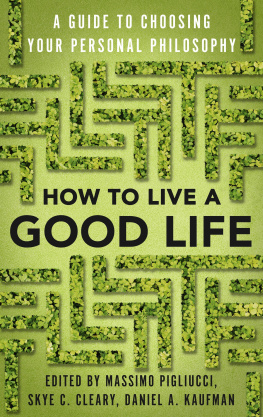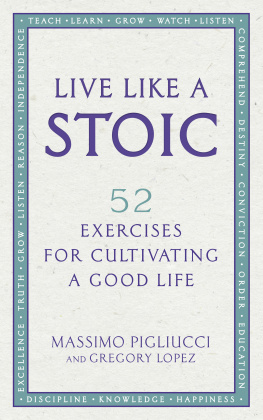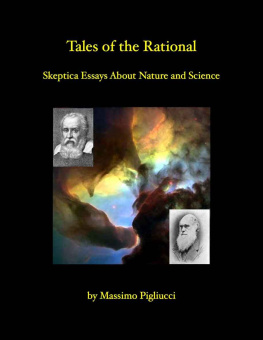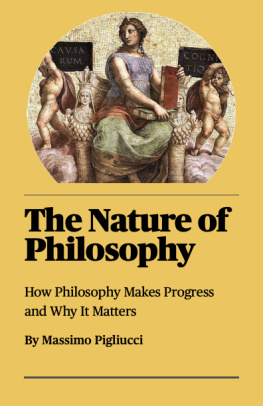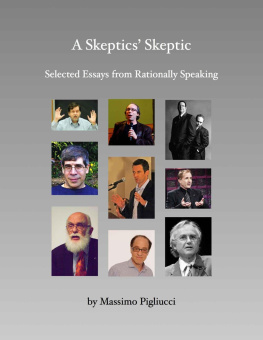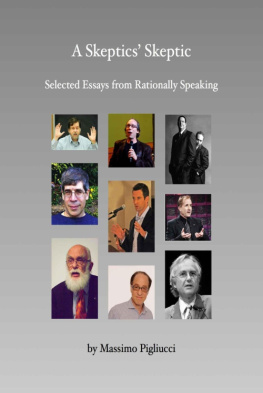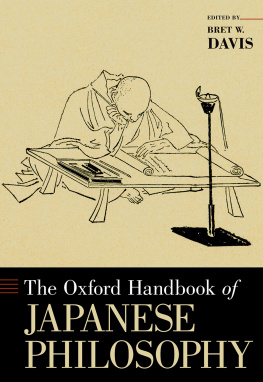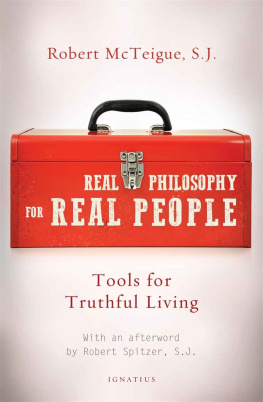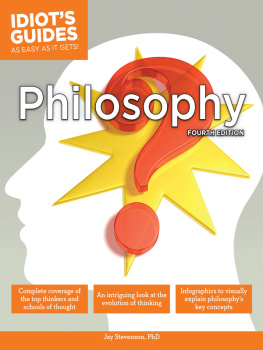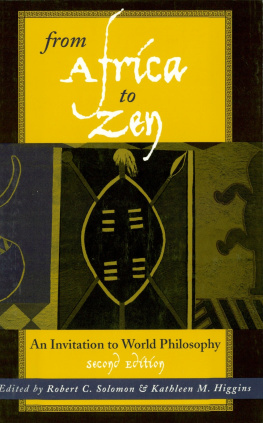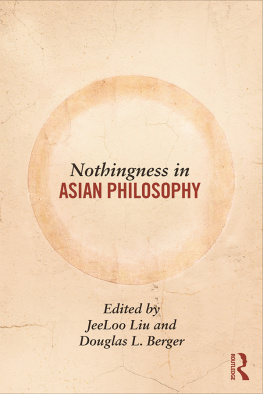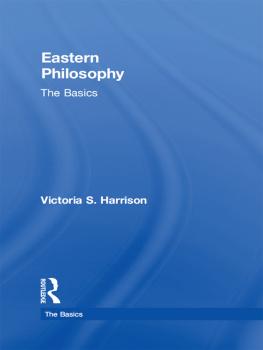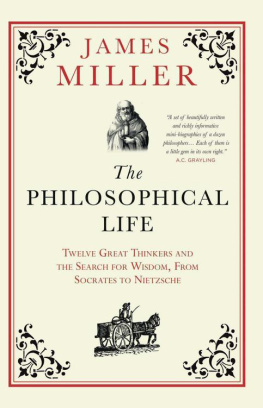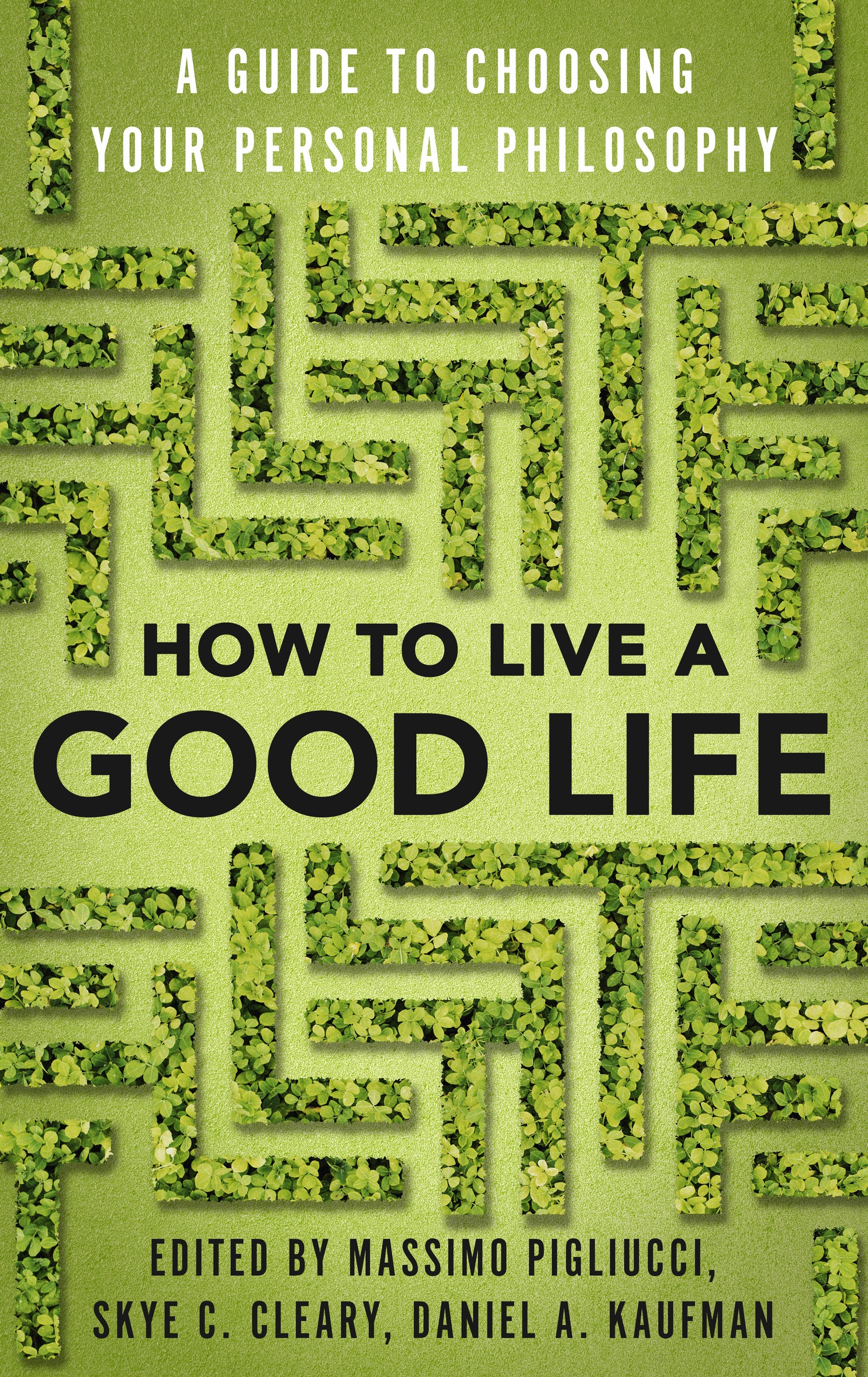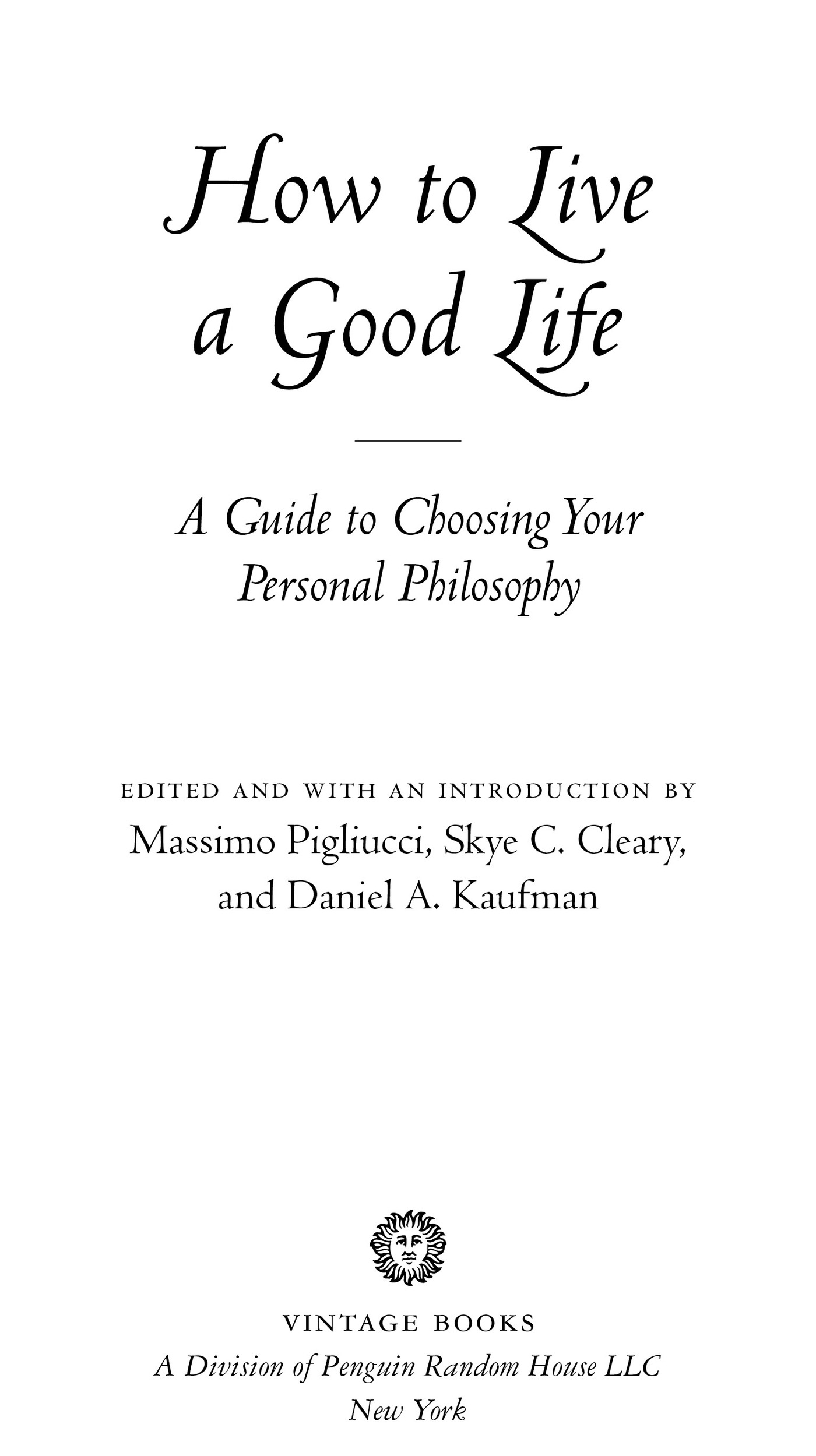All rights reserved. Published in the United States by Vintage Books, a division of Penguin Random House LLC, New York, and distributed in Canada by Penguin Random House Canada Limited, Toronto.
Vintage and colophon are registered trademarks of Penguin Random House LLC.
constitutes an extension of this copyright page.
Names: Pigliucci, Massimo, 1964 editor. | Cleary, Skye, 1975 editor. | Kaufman, Daniel, 1968 editor.
Title: How to live a good life : choosing the right philosophy of life for you / edited and with an introduction by Massimo Pigliucci, Skye C. Cleary, Daniel A. Kaufman.
Description: New York : Vintage Books/Penguin Random House LLC, 2020. | Includes bibliographical references.
Subjects: LCSH : Philosophy. | Religions. | Conduct of life.
Classification: LCC B 21 . H 69 2020 (print) | LCC B 21 (ebook) | DDC 100dc23
Introduction
Who needs a philosophy of life, anyway?
Do you have some idea, however vague, of how the world works? Do you have a sense of how to properly behave toward others? If you answered yes to both questions, congratulations, you have a philosophy of life! A philosophy of life is a framework that is made, at a minimum, of a metaphysics (i.e., an account of how the world works) and an ethics (i.e., a set of principles or guidelines to deploy when interacting with others). The real question, then, is not whether you have a philosophy of life, but rather if it stands up to scrutiny. That is, whether or not its a good philosophy of life.
Most of us dont do what Socrates famously insists we should do: examine our life, since, as he put it, an unexamined life is not worth living. Thats clearly an exaggeration. Plenty of unexamined lives turn out to be worth living, both by those who lived them and by the reckoning of those who examined them later on (e.g., by way of writing someone elses biography). But Socrates was onto something, we think: examining your life, at least from time to time, may help you make small corrections to your lifes course, if need be, and occasionally may even prompt you to make some radical changes to your unfolding path. That has happened to two of us, and we think the experience was transformative and positive.
As she details in chapter 12, Skye began her adult life as what she describes as a good capitalist worker bee, enrolling in an MBA program over the objections of her then-boyfriend, who thought she had too little time for him already, and at any rate, they would soon get married, so what was the point? Then she took a philosophy class, and her professor gave her a book by the existentialist philosopher and landmark feminist Simone de Beauvoir. The effect was extraordinary. As she recalls: It was as though I had just been flashed by the world outside of Platos cave. Philosophy waltzed into my life, seduced me by dancing around and gracefully shattering all the assumptions and expectations I had about life.
Massimo, for his part, was absolutely positive he would live his life as a scientist, and for more than a couple decades thats just what he did, his personal philosophy being a very no-nonsense version of secular humanism (chapter 15). But at the peak of his career, a midlife crisis struck. Rather than buying himself a red Ferrari (which he couldnt afford, anyway), he went back to graduate school, got a PhD in philosophy, and shifted fields. Moreover, he began to explore alternatives to his rather uncritical early acceptance of secular humanism at around age fifteen, after he left the Catholic Church (chapter 9), and serendipitously (via his Twitter feed!) hit on the Greco-Roman philosophy of Stoicism (chapter 5). It was love at first click, and his life hasnt been the same since (for the better, if you need to ask).
Some of the other contributors to this volume have had similar experiences; some have not. But they all were very happy, when we asked them, to reflect publicly on their choice of philosophy of life, explaining what is distinct in that choice and why it works for them. By the end of the book, you will have been exposed to a dizzying array of philosophical views on life: from ancient Eastern approaches such as Buddhism, Confucianism, Hinduism, and Daoism to Western ones such as Aristotelianism, Epicureanism, and Stoicism; from venerable religious traditions such as Judaism, Christianity, and Islam to modern ones such as Ethical Culture, existentialism, effective altruism, pragmatism, and secular humanism. There could have been many more, of course: from geographic areas such as Africa and North and South America; from philosophical realms such as utilitarianism; from religious traditions such as Jainism, Sikhism, and Rastafarianism; or from more politically oriented movements such as feminism, anarchism, liberalism, conservatism, and Marxism. And maybe there will be, in the next edition. After all, this is a sampler, not an encyclopedia. The point is: there are many ways of living ones life philosophically, and it is worth reflecting on the differences as much as on the commonalities (see ).
You will have noticed that we dont make a sharp distinction between philosophies of life and religions, and we think this is for good reason. It is true that some of the traditions we mention are more obviously philosophical (Aristotelianism, Epicureanism, existentialism, effective altruism, pragmatism, secular humanism) and some more obviously religious (Hinduism, Judaism, Christianity, Islam). Then again, some have clear elements of both (Buddhism, Confucianism, Daoism, Stoicism, Ethical Culture). The demarcation line exists, we think, but it is fuzzy, and its application debatable in any given instance. It is also rather pointless. So long as a system of thought has the two components we mentioned at the outset (a metaphysics and an ethics), it qualifies for this anthology. To the degree that the metaphysics includes a significant reference to a transcendental reality, and particularly to a god or gods, that tradition falls more on the side of religion than philosophy, but that distinction is not crucial.
This also means something that might surprise many readers: we all have a philosophy of life, because we were exposed to it when we were kids. More often than not that philosophy happens to be a religion, but of course secular humanists and existentialists also have children! Indeed, although we would love to see a systematic sociological study on this, it is likely comparatively rare that people consciously choose their philosophy of life, as Skye and Massimo have done, and even so, nobody ever really begins from scratch.
Why read the collection of essays you are holding in your hands? For at least three reasons. First, to appreciate the sheer variety of philosophical points of view on life and better understand other human beings who have chosen to live according to a philosophy different from your own. Understanding is the beginning of both wisdom and compassion. Second, because you may wish to know something more about your ownchosen or inheritedlife philosophy; our authors are some of the best and brightest in the field, and their chapters make for enlightening reading. Last, it is possible that you, too, have been questioning your current take on life, the universe, and everything, and reading about other perspectives may reinforce your own beliefs, prompt you to experiment with another philosophy, or perhaps even cause you to arrive at a new eclectic mix of ideas.

